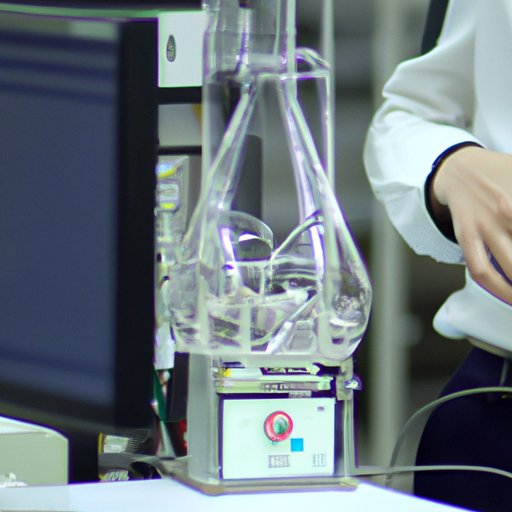Introduction
In the field of science, it is important to understand the concept of controlled variables in order to obtain accurate results from experiments. Controlled variables are factors that are kept constant throughout an experiment in order to isolate the variable being tested. By controlling these variables, scientists can observe how changes in one variable affect other variables. This article explores what controlled variables are and how they are used in scientific experiments.
Definition of Controlled Variables in Scientific Experiments
Controlled variables are factors that remain unchanged during the course of an experiment. As stated by The University of New South Wales, “A controlled variable (or scientific constant) in scientific experimentation is an experimental element which is kept constant and unchanged throughout the course of the investigation.” In essence, these variables allow researchers to focus on a single factor while eliminating potential influences from other variables.
Benefits of Using Controlled Variables
The most significant benefit of using controlled variables is that it allows scientists to accurately measure the impact of a single variable. Without controlling other variables, it is difficult to identify the true cause of any observed change. For example, if the temperature of a solution is increased, it may appear that the reaction rate has also increased. However, without controlling the concentration of the solution, it is impossible to determine whether the increase in reaction rate was due to the temperature or the concentration.
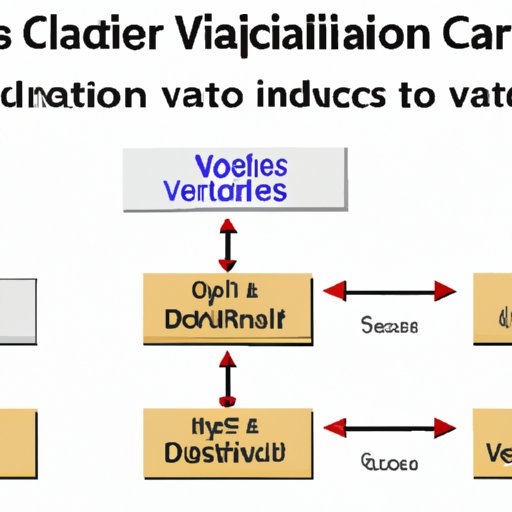
How to Use Controlled Variables for Accurate Results
Using controlled variables requires careful planning and execution. Here are some steps that scientists should take when using controlled variables in their experiments:
Identifying and Isolating Relevant Variables
Before beginning an experiment, scientists should identify all relevant variables and determine which ones need to be controlled. This will help ensure that only the necessary variables are included in the experiment and that all other variables are eliminated.
Establishing Baseline Measurements
Once the relevant variables have been identified, scientists should establish baseline measurements for each one. This will provide a point of comparison for measuring the impact of any changes that occur during the experiment.
Calculating the Impact of Changes on Results
After making changes to a controlled variable, scientists should calculate the impact of those changes on the overall results of the experiment. This will help them determine whether the changes had a meaningful effect on the outcome.
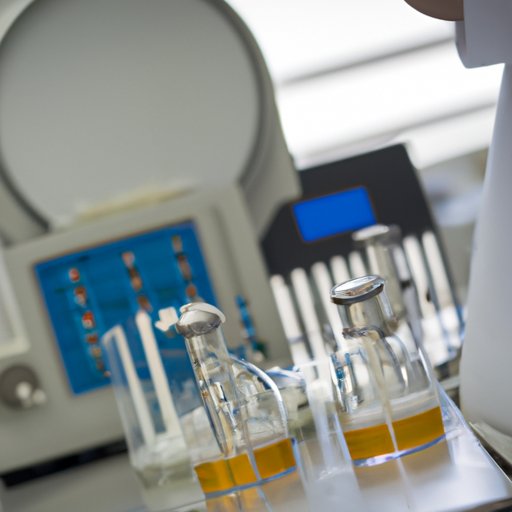
Investigating the Role of Controlled Variables in Scientific Experiments
Controlled variables play a critical role in scientific experiments, as they allow researchers to isolate the effects of a single variable. Here are some ways that scientists can investigate the role of controlled variables in their experiments:
Examining the Interaction Between Variables
Scientists should examine the interaction between different variables to determine how changes in one variable affect other variables. This will help them understand the relationship between the variables and how they interact with each other.
Analyzing the Effects of Uncontrolled Variables
In addition to examining the interaction between variables, scientists should analyze the effects of uncontrolled variables on their experiments. This will help ensure that any changes in the results are due to the controlled variables and not external factors.
Determining the Impact of Systematic Errors
Systematic errors can significantly affect the accuracy of an experiment. Scientists should identify and eliminate sources of systematic error in order to obtain reliable results.
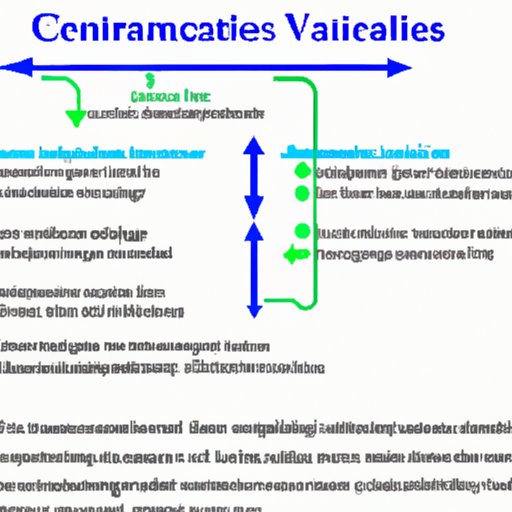
An Overview of the Significance of Controlled Variables in Science Experiments
Controlled variables are essential for obtaining accurate results from scientific experiments. Here are some of the key benefits of using controlled variables:
Maintaining Consistent Conditions
Controlled variables help to maintain consistent conditions throughout an experiment. This ensures that any observed changes are due to the controlled variables and not external factors.
Reducing Unnecessary Variables
By controlling certain variables, scientists can reduce the number of unnecessary variables that may influence the results of their experiments. This helps to simplify the experiment and minimize potential sources of error.
Adjusting Experiments for Improved Accuracy
Controlled variables can also be used to adjust experiments for improved accuracy. By manipulating the controlled variables, scientists can optimize the experiment to obtain more precise results.
Examining the Impact of Controlled Variables on Scientific Research
Controlled variables play an important role in scientific research, as they can be used to evaluate the impact of external factors on experiments. Here are some ways that scientists can use controlled variables to enhance their research:
Evaluating the Impact of External Factors
Controlled variables can be used to evaluate the impact of external factors on experiments. By controlling certain variables, scientists can identify any unexpected changes in the results and determine whether they were caused by external factors.
Controlling Environment Conditions
Controlled variables can also be used to control environment conditions. This allows scientists to ensure that the conditions of the experiment remain consistent and that any observed changes are due to the controlled variables.
Enhancing Experiment Replication
Controlled variables can also be used to ensure that experiments can be easily replicated. By controlling certain variables, scientists can ensure that the same results can be obtained in subsequent experiments.
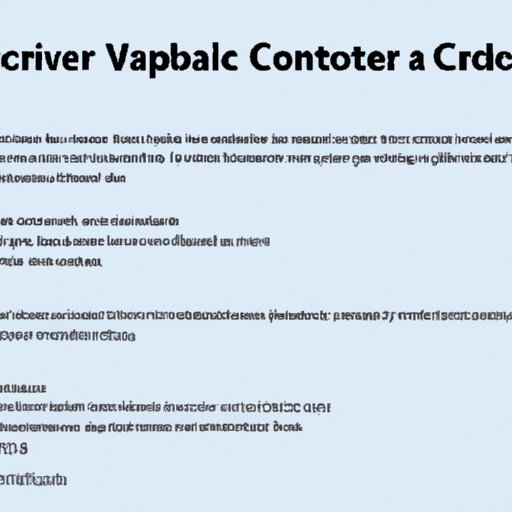
A Guide to Understanding and Utilizing Controlled Variables in Science Experiments
Using controlled variables in scientific experiments requires careful planning and execution. Here is a guide to understanding and utilizing controlled variables in science experiments:
Developing a Hypothesis
Before beginning an experiment, scientists should develop a hypothesis that describes the expected outcome of the experiment. This will help them identify the variables that need to be controlled in order to test the hypothesis.
Establishing Appropriate Controls
Once the relevant variables have been identified, scientists should establish appropriate controls for each one. This will help ensure that the experiment is conducted under consistent conditions and that the results are accurate.
Recording and Analyzing Data
After the experiment is completed, scientists should record and analyze the data to determine the impact of the controlled variables on the results. This will help them draw meaningful conclusions from the experiment.
Tips for Implementing Controlled Variables in Scientific Experiments
Here are some tips for implementing controlled variables in scientific experiments:
Planning Ahead
It is important to plan ahead when using controlled variables in experiments. Scientists should identify the relevant variables and establish controls for each one before beginning the experiment.
Utilizing Automation
Automation can be used to simplify the process of controlling variables. This will help to reduce the amount of time and effort required to conduct the experiment.
Ensuring Quality Control
Quality control is essential for obtaining accurate results from experiments. Scientists should ensure that all variables are properly controlled in order to obtain reliable results.
Conclusion
Controlled variables are an essential component of scientific experiments, as they allow scientists to isolate the effects of a single variable. By understanding and utilizing controlled variables, scientists can improve the accuracy of their experiments and draw meaningful conclusions from their research. This article has provided a comprehensive guide to understanding and utilizing controlled variables in science experiments.
(Note: Is this article not meeting your expectations? Do you have knowledge or insights to share? Unlock new opportunities and expand your reach by joining our authors team. Click Registration to join us and share your expertise with our readers.)
